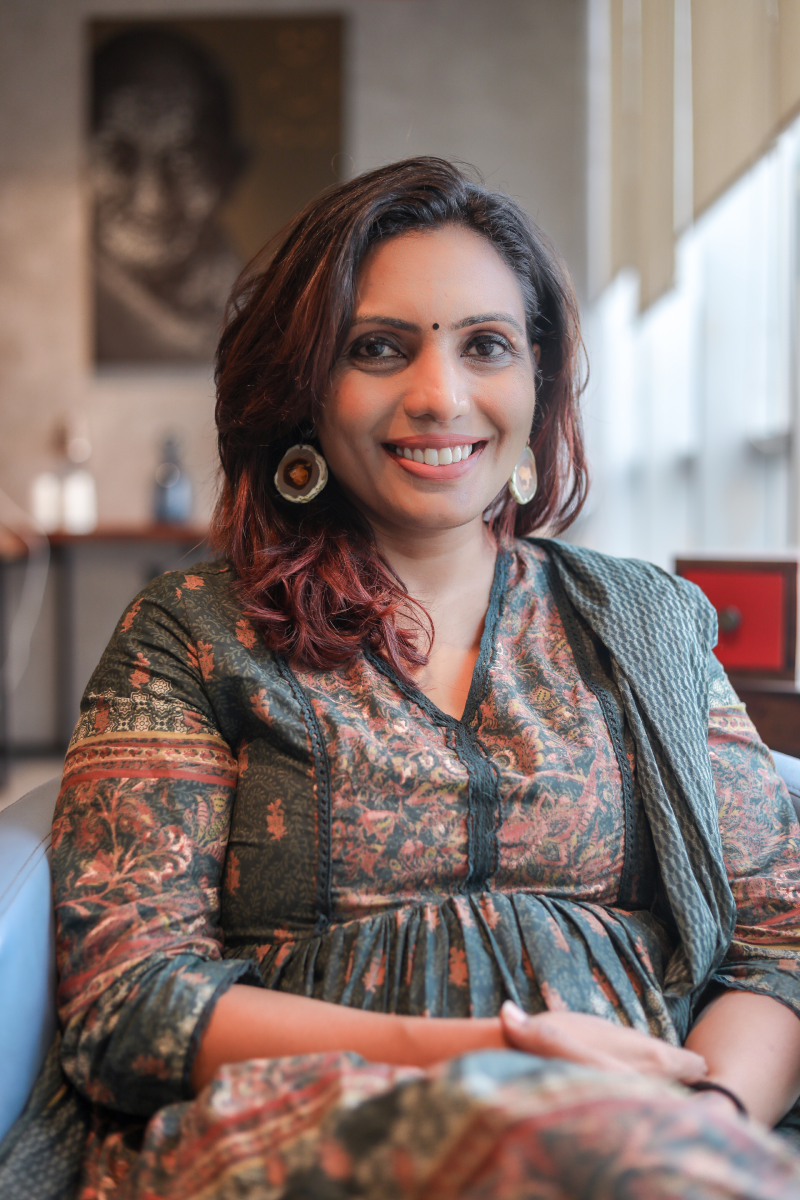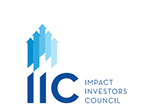|
Enterprise Showcase
Dialogue with Pallavi Utagi, Founder and CEO, SuperBottoms
|
|
.png)
1
How does Superbottoms integrate product innovation with sustainability principles, and what recent advancements have improved both user experience and environmental performance?
|
Superbottoms was built with a single idea. Create the most functional diaper that is safe for a baby and safe for the planet. Every innovation starts with three questions. Is this good for the baby? Does this reduce waste? Does this simplify life for a parent? We use natural fibers like organic cotton and bamboo, minimize synthetics, and keep packaging plastic free. Our latest innovations such as padded underwear and DryFeel langots reduce wash loads, dry faster, and extend the reuse lifecycle, making sustainability effortless for parents.
|
2
Parents are extremely cautious with newborn products. What trust-building strategies such as evidence, community, certifications, or communication has helped Superbottoms shift behaviour toward sustainable, reusable diapering?
|
We built trust before we built scale. Our mom to mom helpline is run by real cloth diapering parents and pediatric certified experts. We also have a community of parents that enables parent to parent conversations that helps new parents get authentic feedback first-hand from other customers as well as support each other in their cloth diapering journeys. We share clinical testing, international safety reports, and BIS certification as well. Since there are no safety norms in India around baby diapers, we went ahead and got our products certified and tested as per the American Child Product Safety Information Act (CPSIA).
We encourage parents to try a single diaper instead of a full pack and even provide a full refund if they do not work for them. Social proof from our community and thousands of reviews became our strongest driver of behaviour change.
|
3
Given that reusable diapers naturally have low replacement frequency, how has Superbottoms structured its business model to sustain growth? Which revenue, category, or lifecycle strategies have proven most effective?
|
Yes, being reusable and focusing on “reduce” as a key sustainability strategy did seem to go against the principles of business which focuses on in fact increasing usage and selling more over less. However, we went a step ahead and even encouraged parents to buy well-maintained pre-loved Superbottoms diapers on our community. This while may seem counter intuitive from a business point of view, in fact helped us truly gain parents’ trust as a brand that puts the planet before the business. This goodwill paid us back via very strong parent reviews and recommendations.
Moreover, to leverage the deep brand love that Superbottoms has we expanded beyond diapers into padded underwear, potty training pants, and kids bottom wear. These are higher repeat purchase categories. It helped us expand the product age range from 0-2 years to 0-12 years. We also built design drops and seasonal collections. The long relationship with the customer gives us high lifetime value even though diapers are low replacement.
|
4
Are there plans to introduce end-of-life or take-back solutions such as recycling, repurposing, or circular programs to address the full lifecycle of Superbottoms products?
|
Yes. Many parents pass on Superbottoms to their second baby or within family groups. We are piloting a Give Back for Good program where gently used diapers are collected, sterilised and donated to NGOs working in low income communities. We also have a program wherein used diapers are taken back by us and upcycled into tiny goodies and products. We are also exploring textile recycling partners to convert end of life products into padding and insulation.
|
5
Across the value chain which involves sourcing, manufacturing, consumer adoption, or end-of-life, where do you face the biggest challenges in scaling circular practices in India, and how are you addressing them?
|
The biggest challenge is behaviour change at scale. Parents often want convenience and disposables feel easier. We tackle this through education and by making our products wash friendly and quick drying. On the supply chain side availability of recycled raw material at the right consistency is limited. We work closely with suppliers and invest in forecasting to avoid overproduction. We also face challenges in finding genuine partners who can help us recycle at scale for our products that have many varying components and fabrics involved. Separating these components is additional work which the partners often find challenging to support us with.
|
6
You've moved from just diapers to padded underwear, mom care, and more. How do you decide which new categories to enter? Is the focus on a "circular" and "sustainable" product the primary filter, or are other factors like market size and repeat purchase potential more significant?
|
Our decision filter is simple. Does this solve a real parenting pain point? Can we make it reusable and kinder to the planet? Will there be some significant differentiator in the product compared to the solutions already available in the market? If the answer to all three is yes we launch it. We also test every idea with our parenting community before investing in production.
|
7
Given the growth of sustainable baby care in India, which type of capital including patient, catalytic, equity, or working capital has been most crucial for Superbottoms journey so far? Additionally, what strategies are necessary for the brand to achieve continuous and responsible scaling in the coming years?
|
In the journey of building Superbottoms, patient and catalytic equity has been the most crucial form of capital. Sustainable baby care is a behaviour change category, and shifting parents from disposable to reusable products needs time, education and trust. Patient capital allowed Superbottoms to invest in product innovation, community building and category creation without pressure for short term returns. Working capital has supported scale, but the real foundation has come from investors who understood the long growth curve of a purpose led brand.
For continuous and responsible scaling, Superbottoms will focus on thoughtful innovation, controlled omni channel expansion and strong operational discipline. Deep community engagement will remain at the core, ensuring authentic trials and high repeat. The brand will continue to grow both diapers and kids essentials in a balanced way while staying profitable and true to its sustainability mission. This combination of steady innovation, disciplined scale and purpose driven growth will help Superbottoms lead the category for years to come.
|
|
|
Pallavi Utagi, Founder and CEO, Superbottoms
Pallavi Utagi is the Founder and CEO of Superbottoms, India’s number one brand for sustainable mom and baby essentials. An engineer from Govt College of Engineering Pune and an MBA from Jamnalal Bajaj, she has rich experience in marketing and has worked on well known consumer brands such as i-pill, i-sure, and Lactacyd. A mother to an 12 year old, she believes deeply in sustainable and gentle parenting, which led her to create Superbottoms. The brand is one of India’s fastest growing D2C companies and is backed by leading investors such as Lok Capital, DSG Consumer Partners, and Saama Capital. Pallavi is passionate about supporting mothers at work and Superbottoms now provides income to 200 women across India.
About SuperBottoms
Superbottoms is India’s number one brand for sustainable mom and baby essentials. Built by parents for parents, the brand combines thoughtful design with gentle, safe and earth friendly materials. What began as a search for better cloth diapers has grown into a trusted community of lakhs of families who rely on Superbottoms for diapers, underwear, potty training, wipes and everyday essentials for babies and kids.
With a strong focus on innovation, comfort and conscious parenting, Superbottoms has built a fast growing D2C business backed by leading investors. The brand also supports flexible employment for more than 200 women across India, staying true to its mission of creating products and impact with care.
|
|
About Impact Investors Council:
Impact Investors Council, India (IIC) is a member-based national industry body formed with an
objective to build and strengthen the impact investing eco-system in India. To know more about our work visit https://iiic.in or reach out to secretariat@iiic.in
|
Disclaimer: Data and Information in this newsletter is made available in good faith with the exclusive intention of helping market and ecosystem players, policymakers and the public build a greater
understanding of the Indian impact investing market. The data is collated from sources believed to be reliable and accurate at the time of publication. Readers are urged to exercise independent judgment and diligence in the
usage of this information for any investment decisions
Some of the information provided in this newsletter is supplied by third parties. It is important that all users understand that third party information is not an endorsement of any nature and has been put together with the
sole purpose of benefiting stakeholders.
|
| Unsubscribe |
|
|
|
.png)

